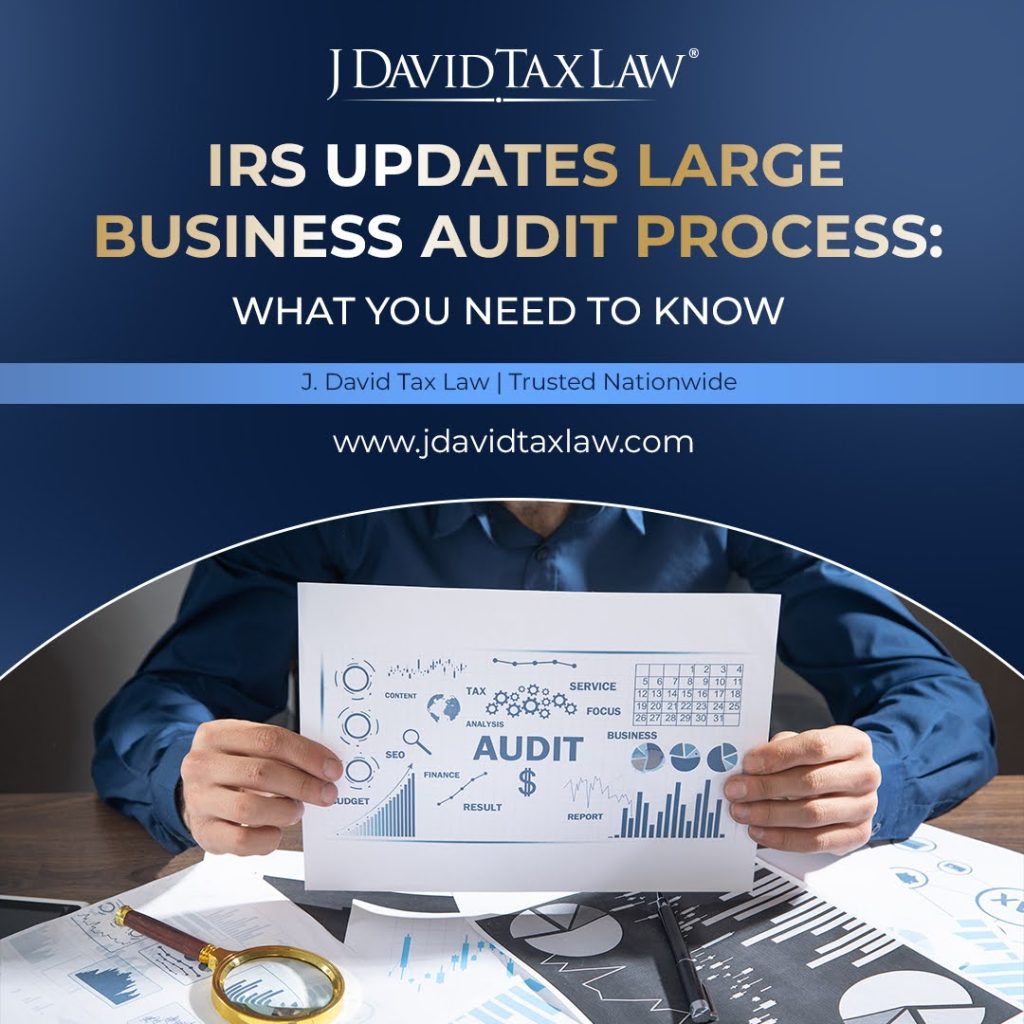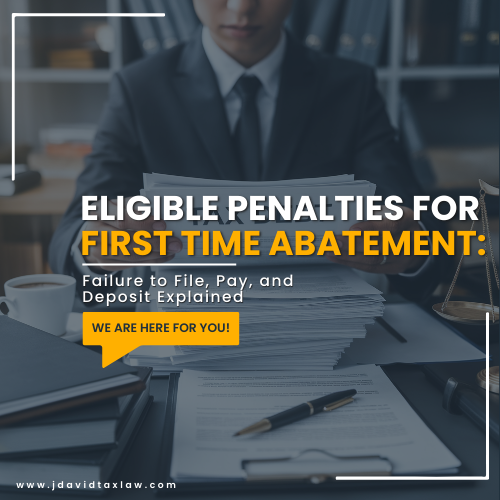For many North Carolinians, understanding and resolving tax debt can be difficult especially if you have no background in taxes. This is compounded by the need to deal with federal IRS processes and specific state tax laws applicable in North Carolina.
Understanding these processes and local regulations can be overwhelming. It not only helps in effectively managing or even reducing your tax obligations but also in avoiding potential legal consequences. The IRS and the North Carolina Department of Revenue have their distinct sets of rules and relief options. This will require a thorough knowledge and strategic approach to handle your tax debt situation efficiently.
In this blog, we will explore several key strategies to manage and resolve tax debt, tailored specifically for residents of North Carolina. We’ll discuss verifying your tax debt, negotiating payment plans, understanding offers in compromise, and leveraging local tax relief programs.
Moreover, the complexity of these issues often means that professional guidance is not just beneficial; it’s essential. We will highlight the importance of enlisting the services of specialized legal professionals like J. David Tax Law. This firm is well-versed in North Carolina and federal tax laws, ensuring that you have an expert partner through your tax resolution.
How Tax Debt Accrues and Common Reasons Behind It
Tax debt in North Carolina, as in other states, accumulates when taxpayers fail to pay the full amount of taxes owed by the due date. This can include federal income taxes, state income taxes, sales taxes, and property taxes. There are several common reasons why individuals and businesses fall into tax debt:
Underwithholding of Taxes: This occurs when insufficient tax is withheld from earnings, leading to a large tax bill at the end of the year that the taxpayer may not be prepared to pay.
Underpayment of Estimated Taxes: Self-employed individuals or those with additional income sources that are not subject to withholding (like interest, dividends, or rent) might fail to make adequate quarterly estimated tax payments.
Filing Delays: Delaying tax filings can lead to penalties and interest accruing on the unpaid tax amount, which increases the overall debt. Taxpayers should also be aware of the statute of limitations in paying the debt in NC to prevent any collection action from the IRS.
Financial Hardship: Unexpected financial difficulties such as job loss, medical emergencies, or significant business losses can impair a taxpayer’s ability to meet tax obligations.
Distinctions Between Federal and State Tax Obligations
It’s important for North Carolinians to understand the differences between federal and state tax obligations to effectively manage their tax responsibilities:
Federal Taxes
These are collected by the IRS and include taxable income, payroll for Social Security and Medicare, and capital gains. Federal tax laws provide various relief programs, such as installment agreements and offers in compromise. Once you get a delinquent notice, calling an experienced tax attorney as soon as possible can help mitigate your penalties.
State Taxes
Managed by the North Carolina Department of Revenue, state taxes include income taxes and sales taxes, among others. NC has its own set of rules for tax collection, penalties, and debt resolution options that may differ from federal guidelines.
Overview of North Carolina Tax Laws That Impact Debt Resolution
North Carolina tax laws offer several avenues for taxpayers to resolve outstanding debts. Understanding these laws is crucial in developing a strategy to tackle tax debt:
Payment Plans: The state offers formal payment arrangements that allow taxpayers to pay off their debt in installments over time. This is similar to federal installment agreements but requires going through specific state procedures and qualifications.
Penalty Waivers: Under certain conditions, such as first-time noncompliance or reasonable cause, taxpayers can apply for a waiver of penalties. However, interest charges may still apply.
Offer in Compromise: Like the federal program, North Carolina allows taxpayers to settle their tax liabilities for less than the full amount owed. This is applicable only if they can prove that paying the full amount would create financial hardship.
These state-specific programs are designed to provide relief and facilitate compliance. Seeking the advice of a tax professional familiar with both IRS and North Carolina tax laws, such as those at J. David Tax Law, can be invaluable in effectively resolving tax debts. This expertise ensures that all potential relief options are considered, and taxpayers take the most appropriate steps toward clearing their tax liabilities.
Taxpayer Rights in North Carolina
Every taxpayer in North Carolina is entitled to certain rights that protect them during their dealings with tax authorities. These rights include:
The Right to Information: Taxpayers have the right to know what they need to do to comply with the tax laws. They are entitled to clear explanations of the laws and IRS procedures in all tax forms, instructions, publications, notices, and correspondence.
The Right to Quality Service: They have the right to receive prompt, courteous, and professional assistance in their dealings with the IRS and state tax departments.
The Right to Pay No More than the Correct Amount of Tax: Taxpayers have the right to pay only the amount of tax legally due, including interest and penalties, and to have the IRS apply all tax payments properly.
The Right to Challenge the IRS’s Position and Be Heard: NC residents have the right to object to formal IRS actions or proposed actions and provide justification with additional documentation in their response.
Responsibilities of Taxpayers in Debt
While taxpayers have rights, they also have responsibilities that are crucial to the resolution of tax issues:
Filing Accurate Returns: Taxpayers must ensure that all tax returns they file are accurate and complete. This reduces the chances of errors and, subsequently, the likelihood of accruing tax debt.
Paying Due Taxes: It is the responsibility of taxpayers to pay the correct amount of taxes owed, including any interest and penalties, by the due date, unless they have made an alternative arrangement, like a payment plan.
Keeping Records: Maintaining detailed financial records is essential. These records can help in preparing accurate tax returns and proving eligibility for deductions and credits.
Importance of Compliance with Deadlines and Procedures
Adhering to tax deadlines and procedural requirements is a crucial responsibility for all taxpayers, especially those dealing with tax debt:
Filing Deadlines: Tax returns must be filed by the due date, including extensions. Late filing can result in penalties and interest that add to the tax debt.
Payment Deadlines: Even if you file an extension for your tax return, any taxes owed are still due by the original filing deadline. Late payments will incur penalties and interest.
Responding to Notices: If you receive a notice from the IRS or the North Carolina Department of Revenue, it is important to respond by the specified deadline to avoid further penalties and possible legal action.
Understanding and fulfilling these responsibilities while exercising your rights can significantly influence the outcome of your tax debt situation in NC.
Resolution Options Available in North Carolina
Tax debt resolution programs are options that provide pathways to potentially reduce the burden of tax liabilities and achieve financial stability. There are several key resolution strategies available under both federal and North Carolina state tax laws.
Payment Plans
One of the most accessible ways to manage tax debt is through payment plans, which allow taxpayers to pay off their debt in more manageable installments over time.
Federal Payment Plans: The IRS offers various types of installment agreements depending on the amount owed and the taxpayer’s financial situation. These include short-term payment plans (for debt less than $100,000 payable within 120 days) and long-term payment plans (for larger amounts or longer repayment terms).
North Carolina Payment Plans: The North Carolina Department of Revenue also provides options for installment payments. These plans are tailored to fit the taxpayer’s ability to pay and consider their overall financial circumstances. It’s important to apply for these plans promptly to avoid further penalties and interest. You can apply for monthly payments or secure an agreement between parties to prevent late payment penalties.
Offers in Compromise (OIC)
An Offer in Compromise allows taxpayers to settle their tax debt for less than the full amount owed if paying the full debt would cause financial hardship. This can also be resorted to if there is doubt as to the liability or collectability of delinquent taxes.
Federal OIC
At a federal level of an OIC, IRS accepts this offer based on three grounds:
doubt as to liability,
doubt as to collectability, and
effective tax administration.
Taxpayers need to demonstrate that they meet the IRS criteria through detailed documentation of their financial situation. They also need to be notified about the overdue taxes and secure an installment payment agreement if necessary.
North Carolina OIC
Similarly, North Carolina offers an OIC program. Applicants must provide comprehensive financial information and prove that paying the full amount would create significant financial distress.
Steps to Utilize Relief Options
Successfully going through with your tax relief options requires a structured approach. Each step of the process is designed to ensure that you can effectively manage your tax debt with the best possible outcome. Here’s how to utilize these relief options effectively:
Assessment: Review your financial situation thoroughly or seek professional help to understand the most viable option for your specific circumstances.
Documentation: Gather all necessary financial documents, such as income statements, expense reports, asset listings, and relevant tax records.
Application: Apply for the chosen resolution option through the appropriate channels. This might involve filling out forms for a payment plan or an OIC, both of which require detailed financial disclosures. You can also request an installment payment agreement or compromise form to prevent additional penalties.
Negotiation: In some cases, such as with an OIC, there may be some negotiation involved with the tax authority over the terms or the amount to be paid.
J. David Tax Law can provide invaluable assistance in getting the suitable relief that you need. This firm can help you understand your rights, prepare the necessary documentation, and negotiate with tax authorities. Tax attorneys can help you secure a resolution that minimizes your tax debt burden while ensuring compliance with tax laws.
Conclusion
Do not ignore or delay your tax obligations in NC. It can lead to increased penalties, interest, and more severe financial repercussions. Taking proactive steps early can help manage and potentially reduce the overall burden of tax debt.
Seeking professional help from tax experts like J. David Tax Law can provide you with debt management programs based on your needs. Professionals can assist in evaluating your delinquent taxes, exploring all available resolution options, and representing your interests in collection actions from the IRS.
Remember, resolving your tax debt not only alleviates immediate financial stress but also sets a foundation for long-term financial health. With the right approach and expert guidance, you can secure your financial freedom quickly.
Frequently Asked Questions
What should I do if I cannot pay my tax debt in full by the deadline?
Can penalty charges be waived in North Carolina for tax debt?
What is an Offer in Compromise, and how do I know if I qualify for one in North Carolina?
What happens if I am deemed Currently Not Collectible (CNC) by the IRS or North Carolina Department of Revenue?
However, it does not forgive the tax debt, and the authorities will periodically review your financial situation to determine if your status should change. You can negotiate an installment payment agreement, debt management programs, or wage garnishment in case you get a stable income in the future.




















